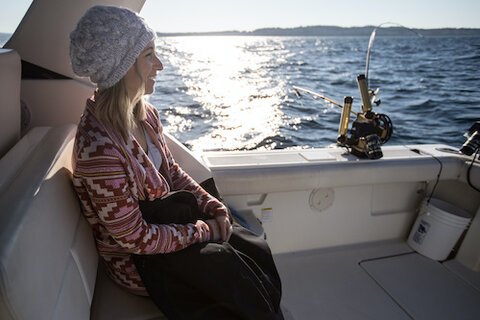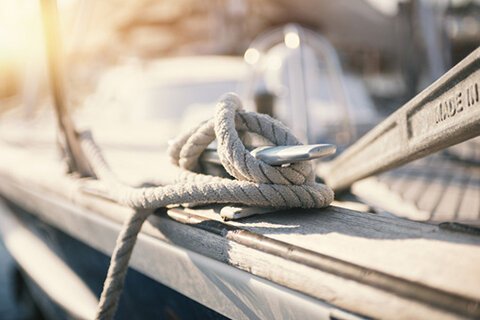It’s summer — time to go cruising.
Whether in a powerboat or under sail, cruising has always held a special place in my soul.
I’ve never been much of a day sailor. When younger, I used to race, but even racing was a means to an end. Though I was extremely competitive, what I was really into was learning to optimize the handling of the boat under sail. Nowhere can you learn more about sailing and boat handling than by racing. That’s not to say that racing will necessarily improve your seamanship.
My observations of cruising in sail- and powerboats is that, for many powerboaters, the destination is the key reason for cruising. It’s like taking a car trip, but the destination is over water. The main idea is to get there. They enjoy being on the water, but they enjoy something that only cruising can provide: the option of joining in or opting out with the benefit of isolation.
For sailors, the trip itself is the thing. My personal experience has often been to resent the end of the passage. For me, at least, being on the water is the vacation. Sure I enjoy going ashore and to terra firma and my fellow boaters, but it’s interrupting my time on the water, under way and making way. Away from land it’s my crew, the sea, the boat and me. The passage is my responsibility and my experience to share and enjoy.
There are some things you can do to ensure a memorable — favorable memories, that is — experience.
1. Don’t put yourself on a schedule, especially not a tight schedule. I realize Type-A personalities are usually the ones who can afford to own or charter a cruising boat, but if they can accomplish so much in their careers, they can control the urge to do as much as possible when cruising. The object is to get away from stress, not create it.
2. Be very aware of the weather and let that dictate the timetable, rather than a schedule. This is especially true when cruising under power, but sailors are also guilty, especially if they think they have a fast boat. The tendency to believe speed and power will pull you through, or allow you to beat impending weather, has caused more problems than almost anything else.
3. Leave a float plan with someone reliable. If the unforeseen happens, there is someone who has an idea as to where you were going and when you were planning to arrive and/or return. Cell phones can be unreliable, especially on the water, and the VHF can fail, as can other methods of communication. It’s nice to have someone who gives a darn on shore to wonder what’s happening if they don’t hear from you.
4. Know your crew — who might get seasick, who could actually help in an emergency. At least one other seaman on board is comforting and can help share the load.
5. Make sure your charts are current and updated from the Coast Guard Notice to Mariners.
6. Plan your cruise so you know what hidey-holes are available along the legs of your passage, depending on wind and tide conditions.
7. If there will be kids on board, plan to involve them. I know that with television, movies, computers, video games and cell phones it may be difficult, but have them do something to get them away from the electronics. Our kids were expected to share the burden when we cruised, so that was less of a problem. We never brought consumer electronics on board — it was a rule, and the discipline paid off. Of course, we were lucky that they loved being on the boat, and they had the carrot of occasionally bringing friends.
8. If people are getting queasy, don’t let them go below; they’ll only get worse. Take seasickness preventatives on a prophylactic basis. Have a supply of ginger-based items, crackers, cookies, tea — the old shtick about an ounce of prevention is still valid and ginger works.
9. If your idea of cruising is not marina-hopping, make sure your ground tackle is adequate and review, at least in your own mind and with those who may be involved in anchoring, your anchoring drill. Don’t drop while moving forward; be sure the scope is adequate and actually set the anchor.
10. I enjoy a sundowner or a beer as well as the next guy, but consume alcohol only when you’re not under way — no exceptions on board. Make sure everyone understands that rule.
11. It goes without saying that your mechanical, electrical, plumbing (including pumpout) and electronic systems should be checked and good to go before you leave the dock. Make sure you have reasonable spares and “stuff,” such as duct tape, nuts and bolts, and tools before casting off.
Enjoy yourself but prepare.
Article by: Michael Saylor
Soundings Publications LLC
SoundingsOnline.com


